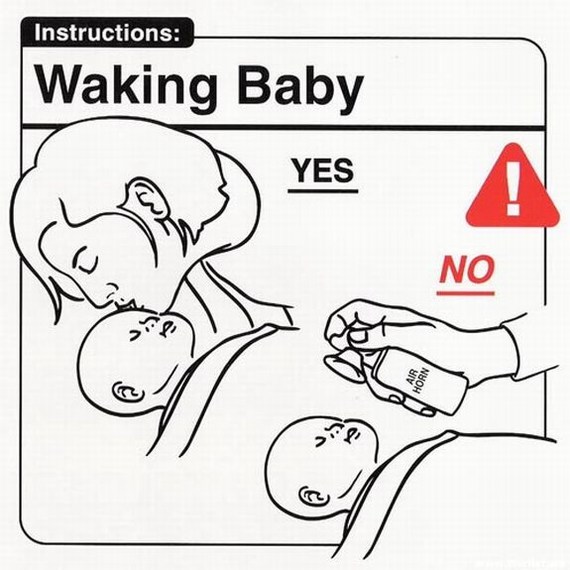Nutrition Tips for Babies
Breastfeeding Benefits and Guidelines
In the delicate dance of nurturing new life, understanding how to improve baby health begins with the foundation of optimal nutrition. Breastfeeding, a timeless ritual, not only nourishes but also weaves a tapestry of health benefits that ripple through a child’s early years. It’s a natural symphony of antibodies and essential nutrients that bolster the immune system, fostering resilience in the face of common childhood ailments.
Guidelines for breastfeeding are as vital as the act itself. Ensuring a proper latch, maintaining a comfortable feeding environment, and recognising hunger cues help create a nourishing cycle that supports growth and development. For those seeking to deepen their understanding, consider the following:
- Exclusive breastfeeding for the first six months, offering complete nourishment
- Monitoring baby’s weight gain and behaviour for signs of adequate intake
- Consulting healthcare professionals to tailor feeding schedules and address concerns
By mastering these principles, parents unlock the secret to how to improve baby health naturally, fostering a thriving foundation for a vibrant future.

Introducing Solid Foods Safely
Introducing solid foods is a pivotal moment in the journey to improve baby health, transforming their diet from pure milk to diverse textures and flavours. Yet, the process must be approached with care — a single misstep can introduce allergens or upset delicate digestion. The key lies in timing, patience, and knowledge. Starting around six months, when a baby can sit upright and show interest in food, offers the safest window to begin this new chapter.
Safety is paramount. Begin with single-ingredient purees, watching for reactions or sensitivities. Gradually, you can expand the variety, incorporating nutrient-rich options like iron-fortified cereals, vegetables, and fruits. Remember, consistency and moderation are your allies in this transition. When it comes to how to improve baby health, introducing solid foods safely ensures a sturdy foundation for their immune system and growth.
- Ensure the food is mashed or pureed to prevent choking.
- Introduce new foods one at a time, waiting a few days to monitor for allergies.
- Maintain a clean feeding environment to minimise infection risk.
Essential Nutrients for Growth and Development
Understanding the importance of essential nutrients can be a game-changer when considering how to improve baby health. At this stage of development, babies need a balanced intake of vitamins, minerals, and macronutrients to support rapid growth and robust immune function. Iron, zinc, calcium, and Vitamin D are particularly critical, aiding everything from bone strength to cognitive development.
Incorporating a variety of nutrient-rich foods ensures your baby receives these vital elements. For example, offering iron-fortified cereals, leafy greens, and colourful fruits can boost immunity and encourage healthy growth. A well-rounded diet with diverse textures and flavours not only enhances nutritional intake but also fosters healthy eating habits early on.
- Ensure foods are mashed or pureed to prevent choking.
- Introduce new ingredients one at a time to observe reactions.
- Maintain a hygienic feeding environment to minimise infection risks.
Managing Food Allergies and Intolerances
Managing food allergies and intolerances is a vital part of learning how to improve baby health. Allergic reactions can develop unexpectedly, so recognising early signs like rashes, swelling, or breathing difficulties is crucial. Introducing new foods gradually allows you to monitor your baby’s response and identify potential triggers. This cautious approach not only reduces the risk of adverse reactions but also builds confidence in feeding routines.
When introducing allergenic foods such as nuts, eggs, or dairy, consider consulting a healthcare professional for personalised guidance. Keep a detailed food diary to track reactions and streamline the process of elimination if necessary. Remember, maintaining a hygienic feeding environment and preparing foods to minimise contamination are essential steps in safeguarding your baby’s health.
- Offer small portions of new foods at a time
- Introduce one new ingredient every few days
- Watch for signs of intolerance or allergy
Being vigilant and informed is the best way to ensure your baby’s dietary journey is safe and healthy, making it easier to understand how to improve baby health in the long run.
Creating a Safe and Hygienic Environment
Ensuring a Baby-Proofed Home
Creating a safe and hygienic environment isn’t just a wise move; it’s the foundation of how to improve baby health effectively. Babies are little explorers with a knack for turning everyday hazards into potential health crises. A home that’s thoroughly baby-proofed reduces risks and promotes a sense of security that’s essential for healthy development.
Start by securing furniture to the walls—those wobbling bookshelves aren’t just an eyesore but a danger! Cover electrical outlets with child-proof plugs and keep small objects, sharp items, and choking hazards out of reach. Regularly sanitise surfaces and toys to prevent germs from sneaking into your baby’s fragile system.
For peace of mind, consider implementing a checklist:
- Secure furniture and fixtures
- Cover electrical outlets
- Keep hazardous substances locked away
- Maintain a clutter-free environment
This meticulous approach to creating a safe, hygienic environment is a cornerstone of how to improve baby health, ensuring your little one can explore, learn, and grow in a space that’s as safe as it is stimulating.
Maintaining Proper Hygiene Practices
Creating a safe and hygienic environment isn’t just about avoiding bumps and bruises; it’s a vital component of how to improve baby health. Babies have an uncanny talent for turning everyday objects into potential hazards—think of their tiny hands as both explorers and accident magnets. Maintaining proper hygiene practices helps keep germs at bay, which is crucial given their developing immune systems.
Regularly sanitising toys, surfaces, and feeding utensils is essential. A simple routine of wiping down high chairs, play mats, and door handles can drastically reduce the risk of infection. Additionally, washing hands thoroughly before handling your little one or preparing food is an often-overlooked step that can prevent the spread of illness. To streamline this process, consider adopting a checklist:
- Sanitise frequently touched surfaces
- Wash hands before touching baby or feeding
- Clean toys and feeding equipment regularly
- Maintain a clutter-free, easy-to-clean space
In the quest of how to improve baby health, these simple yet effective hygiene practices serve as the foundation. They turn your home into a sanctuary where your baby can safely explore, learn, and grow without the lurking threat of germs or accidents—because a clean home is a happy, healthy baby’s domain!
Safe Sleeping Arrangements to Prevent SIDS
Ensuring safe sleeping arrangements is one of the most critical steps in how to improve baby health. Each year, thousands of infants are affected by preventable sleep-related incidents, making it vital for parents to create a secure environment for their little ones. Proper sleep setups not only reduce the risk of SIDS (Sudden Infant Death Syndrome) but also promote healthy growth and development.
When designing a safe sleeping environment, consider the following essentials: a firm mattress with a fitted sheet, a clutter-free crib free of soft toys or loose bedding, and the baby sleeping on their back. It’s also important to keep the sleep space in a smoke-free zone and maintain a comfortable room temperature. Using a properly fitted sleep sack instead of blankets can further minimise hazards.
Implementing these measures provides peace of mind and is a fundamental part of how to improve baby health. Creating a safe, hygienic sleeping environment supports restful sleep, which is vital for your baby’s physical and cognitive development. Remember, a well-protected sleep setting is not just about safety; it’s about nurturing your baby’s overall well-being from day one!
Avoiding Exposure to Harmful Substances
In the realm of safeguarding your little one’s future, one of the most potent spells is creating a safe and hygienic environment, free from exposure to harmful substances. Every corner of your home holds the potential for either nourishment or peril, making vigilance paramount. Infants are especially vulnerable to toxins, which can subtly undermine their development and overall health.
To weave a protective barrier, consider implementing measures such as choosing non-toxic cleaning products, avoiding air fresheners, and ensuring that paint and furniture meet strict safety standards. An effective approach is to establish a routine that includes checking for potential hazards, like loose electrical cords or small objects that could pose choking risks. Maintaining a clean environment not only prevents infections but also nurtures a sense of calm and security for your baby.
- Regularly ventilate rooms to disperse indoor pollutants, ensuring a steady flow of fresh air.
- Store household chemicals and medications out of reach, preferably in locked cabinets.
- Opt for natural fibres in bedding and clothing to reduce exposure to synthetic chemicals.
By prioritising these practices, parents can confidently navigate the labyrinth of potential dangers, making informed choices that profoundly impact how to improve baby health. A pristine, toxin-free environment acts as a magical shield, empowering your infant to flourish in a world brimming with wonder and safety.
Promoting Physical Activity and Development
Encouraging Tummy Time
From the moment they are born, babies embark on an extraordinary journey of discovery and growth. Encouraging physical activity, especially through tummy time, is fundamental in fostering healthy development. It’s astonishing how a simple act can significantly influence a baby’s motor skills, muscle strength, and overall well-being. When parents dedicate a few moments each day to supervised tummy time, they are not only helping to prevent flat head syndrome but also laying the groundwork for future milestones like crawling and walking.

To make tummy time engaging and effective, consider incorporating colourful toys or gentle encouragement. This activity should be playful and stress-free, turning it into a delightful bonding experience. As babies gain confidence in lifting their heads and exploring their surroundings, they develop spatial awareness and coordination. Understanding how to improve baby health involves nurturing these early physical activities and recognising their profound impact on lifelong wellness and vitality.
Age-Appropriate Play Activities
Unlocking your baby’s potential through age-appropriate play activities is a delightful adventure that fuels their growth and sparks curiosity. Every giggle and eager reach embodies the magic of discovery, making playtime not just fun but an essential part of how to improve baby health. Incorporating activities suited to their developmental stage nurtures muscle strength, coordination, and cognitive skills, laying a solid foundation for future milestones.
For infants just beginning to explore, soft sensory toys and gentle arm movements can stimulate their senses and encourage movement. As they grow, introducing simple activities like stacking blocks or crawling games enhances their motor skills and spatial awareness. Remember, the key is to keep play engaging and safe, fostering an environment where curiosity blossoms naturally. When parents focus on age-appropriate play, they are actively participating in how to improve baby health, ensuring their little one develops optimally in a world full of wonder!
Supporting Motor Skill Development
In the gentle dance of infancy, each movement and stretch becomes a symphony of growth—an intricate ballet choreographed by nature herself. To truly understand how to improve baby health, fostering physical activity and nurturing motor skill development are paramount. These activities are not mere pastimes but vital threads woven into the fabric of their burgeoning independence. When babies crawl, reach, and grasp, they are not only exploring the world but also sculpting the very foundation of their strength and coordination.
Supporting motor development involves creating an environment ripe with opportunities for movement. Incorporating playful activities such as guided tummy time, assisted sitting, and safe exploration encourages muscles to strengthen and spatial awareness to blossom. For example, placing colourful toys just beyond their reach can motivate a baby to stretch and pivot, sharpening their motor skills through joyful discovery. Remember, every cautious waddle and tentative reach is a step closer to mastery—each a testament to how to improve baby health through active engagement.
Importance of Regular Pediatric Checks
In the delicate journey of nurturing a baby’s growth, regular physical activity acts as the vital catalyst that unlocks their full potential. It’s astonishing to think that engaging in playful movement not only fosters physical development but also lays the groundwork for cognitive and emotional resilience. When babies are encouraged to move freely, they begin to develop the strength and coordination necessary for future milestones. Supporting motor skills isn’t merely about physical strength; it’s about cultivating independence, curiosity, and confidence in their own bodies.
Regular pediatric checks serve as an essential compass guiding this developmental voyage. These visits offer a window into their overall health, allowing healthcare professionals to monitor growth patterns, identify potential issues early, and tailor activities that bolster their physical and emotional well-being. Incorporating age-appropriate play activities and ensuring a safe environment helps create a foundation where healthy habits flourish, revealing the profound importance of consistent medical oversight in understanding how to improve baby health.
Building a Strong Immune System
Proper Vaccination Schedules
Building a robust immune system is the cornerstone of how to improve baby health, transforming your little one into a resilient adventurer in a world fraught with unseen challenges. Proper vaccination schedules act as enchanted shields, awakening the body’s natural defences and thwarting insidious pathogens before they can take root. When administered in harmony with the child’s developmental milestones, vaccines forge an unbreakable armour that lasts a lifetime.
Ensuring your baby adheres to an age-appropriate vaccination timetable isn’t merely a routine; it’s a vital ritual of safeguarding future well-being. The importance of these schedules cannot be overstated—they are meticulously crafted by experts to optimise immune response and provide peace of mind. Remember, an early commitment to timely immunisations is the key to unlocking a healthier, happier future for your bundle of joy.
Boosting Immunity Through Nutrition
Building a strong immune system begins with nourishing your baby’s body from the inside out. Nutrition plays a pivotal role in how to improve baby health, transforming a fragile little one into a resilient explorer. Introducing nutrient-dense foods at the right time can supercharge their natural defences and set the foundation for lifelong vitality.
Foods rich in vitamins A, C, D, and zinc are especially crucial for boosting immunity. Incorporating a colourful array of fruits, vegetables, and wholesome grains helps ensure your baby receives these vital nutrients. For infants transitioning to solids, choosing options like pureed citrus, sweet potatoes, and fortified cereals can make a significant difference in their immune response.
However, it’s not just about what to feed—it’s also about how to feed. Consistent, age-appropriate feeding routines combined with a loving environment create the perfect conditions for optimal absorption and utilisation of nutrients. When these elements come together, they form an invisible shield—a powerful defence against common illnesses and infections.

Ensuring Adequate Sleep for Immune Health
Building a robust immune system in your little one begins long before sniffles and coughs appear. One often overlooked yet vital aspect of how to improve baby health is ensuring they get adequate sleep. Sleep acts as a gentle guardian, allowing the body’s natural healing processes to unfold and fortify their defenses. When babies rest well, their immune response becomes more resilient, making them less susceptible to common infections and illnesses.
Ensuring consistent sleep routines aligned with their natural rhythms fosters this vital recovery. An environment that is both soothing and safe—think dim lighting, comfortable bedding, and a calm atmosphere—serves as a lullaby for their developing immune system. It’s remarkable how something as simple as prioritising restful nights can significantly impact a baby’s health trajectory, transforming fragile beginnings into thriving adventures. Embracing these practices is a gentle yet powerful step in how to improve baby health, nurturing their vitality from the inside out.
Managing Illnesses Effectively
Among the most vital aspects of nurturing a resilient immune system in infants is learning how to improve baby health by managing illnesses with finesse and care. When a little one falls ill, swift and gentle intervention can make all the difference. Recognising early symptoms and responding promptly can prevent minor ailments from escalating into more serious concerns, thereby reinforcing their natural defences.
Incorporating a structured approach to managing illnesses involves understanding the importance of hydration, rest, and appropriate medical guidance. An effective strategy includes observing their behaviour closely and maintaining open communication with healthcare providers. This proactive stance not only alleviates discomfort but also fortifies their immune resilience.
- Monitor symptoms diligently and record any changes.
- Ensure they stay well-hydrated and rested.
- Seek professional advice for persistent or severe symptoms.
By adopting these practices, parents and caregivers can navigate the delicate balance of supporting recovery while safeguarding their child’s burgeoning health. This careful management exemplifies how to improve baby health through compassionate, informed actions that nurture their vitality from the inside out.
Emotional and Emotional Wellbeing for Babies
The Role of Parental Bonding
Research consistently shows that a strong emotional foundation is crucial for how to improve baby health. When a baby feels safe and loved, their stress levels decrease, fostering healthier brain development and immune function. Parental bonding isn’t just about cuddles; it’s about creating a secure environment where the baby can explore and grow with confidence. This emotional connection influences a child’s ability to regulate emotions and build resilience later in life.
Building this bond involves simple, consistent actions—eye contact, gentle touch, and responsive caregiving. These interactions are more than fleeting moments; they are the building blocks of lifelong emotional wellbeing. A nurturing environment not only supports mental health but also enhances physical health, making it a vital aspect of how to improve baby health overall.
- Responsive communication
- Consistent routines
- Positive reinforcement
By prioritising parental bonding, caregivers can pave the way for a resilient, healthy future for their little ones. It’s about more than just the physical—emotional wellbeing is the cornerstone of lifelong health and happiness.
Creating a Secure Attachment
Creating a secure attachment in a baby’s early months lays the foundation for their emotional and physical wellbeing. When infants feel consistently safe and loved, their stress levels diminish, allowing their brain to develop more robustly. This emotional stability is vital for how to improve baby health, as it directly influences immune function and resilience. Building this bond doesn’t require grand gestures; simple acts like maintaining eye contact, gentle touch, and responsive caregiving foster trust and security. These moments, though seemingly fleeting, are powerful tools that nurture a sense of safety, ensuring the child’s emotional wellbeing remains resilient throughout life.
Research indicates that secure attachment isn’t just about emotional comfort; it’s intricately linked to physical health outcomes as well. For example, a baby who feels protected and understood is more likely to explore their environment confidently, which aids motor development and cognitive growth. Prioritising emotional wellbeing in early childhood creates a ripple effect—supporting not only mental health but also strengthening immune response. In this way, caregivers can profoundly influence how to improve baby health, weaving emotional security into the very fabric of their daily routines.
Reducing Stress through Routine and Comfort
Creating a calming environment is essential for nurturing a baby’s emotional wellbeing. Babies are remarkably sensitive to their surroundings, and a predictable routine can provide a sense of stability that reduces stress levels. When a baby knows what to expect—whether it’s a consistent nap time or a familiar bedtime routine—they feel safer and more content. This emotional security acts as a buffer against anxiety, supporting their overall health and growth.
Simple comforts go a long way in fostering emotional resilience. Gentle rocking, soothing words, and a cosy space filled with familiar smells and textures can significantly enhance a baby’s sense of safety. Incorporating these elements into daily routines not only calms the infant but also helps build a foundation for how to improve baby health long-term. Remember, a relaxed baby is more likely to explore their environment confidently, which in turn encourages physical and cognitive development.
- Consistent feeding and sleeping schedules
- Familiar, comforting objects like soft blankets or plush toys
- Quiet, soothing environments during rest times
In essence, prioritising emotional comfort through routine and gentle care doesn’t just nurture happiness; it actively contributes to physical health, immune resilience, and overall developmental success. When caregivers invest time in creating these stable moments, they weave a resilient fabric of emotional wellbeing that supports how to improve baby health comprehensively.
Monitoring for Signs of Anxiety or Distress
Babies are exquisitely attuned to their emotional landscape — a tiny mirror reflecting the world’s chaos or calm. Recognising when a little one shows signs of anxiety or distress is vital in understanding how to improve baby health. Subtle cues, such as furrowed brows, clenched fists, or irritability, often hint at underlying discomfort. These signals, if overlooked, can escalate into long-term issues affecting emotional resilience and overall development.
Monitoring a baby’s emotional wellbeing involves a keen eye and gentle intuition. Notice if your baby becomes unusually clingy or shows signs of withdrawal. Such behaviours may indicate stress, which can impede their immune resilience and growth. Creating a nurturing environment with consistent comfort and routine helps mitigate these distress signals, fostering a sense of safety that is foundational to healthy development. Remember, early detection and responsive care are essential in nurturing a resilient, happy infant.
Sometimes, small shifts in behaviour—like difficulty settling or persistent fussiness—are the only clues we have. By tuning into these subtle cues, caregivers can better understand their baby’s emotional state. Recognising these signs not only guides immediate comfort measures but also contributes profoundly to how to improve baby health in the long term. A vigilant, empathetic approach ensures that emotional and physical wellbeing flourish, laying the groundwork for a resilient future.

0 Comments